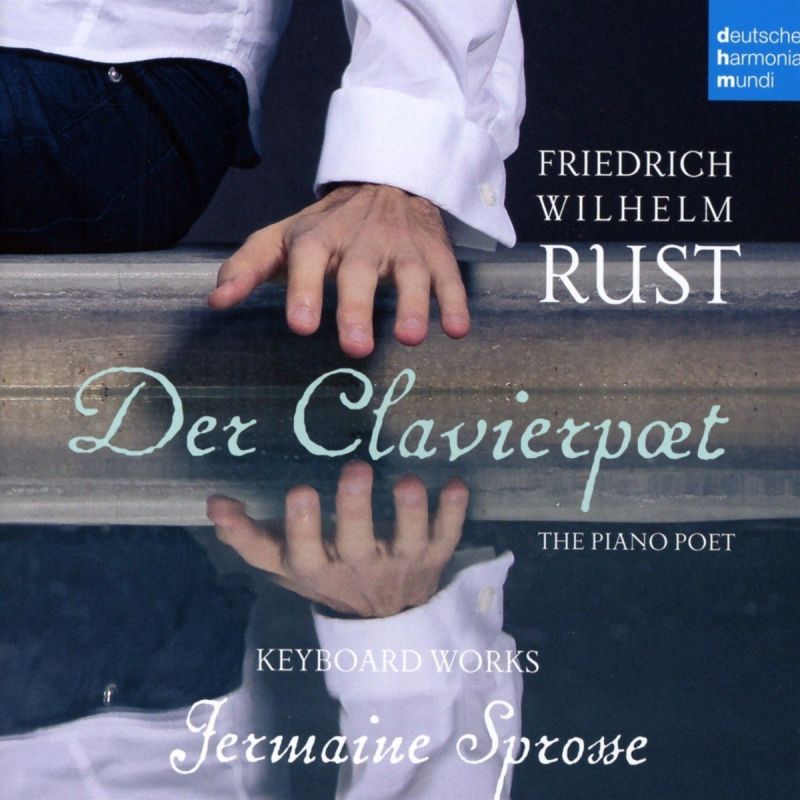RUST Der Clavierpoet
View record and artist detailsRecord and Artist Details
Composer or Director: Friedrich Wilhelm Rust
Genre:
Instrumental
Label: Deutsche Harmonia Mundi
Magazine Review Date: 04/2017
Media Format: CD or Download
Media Runtime: 76
Mastering:
DDD
Catalogue Number: 88985 36927-2

Tracks:
| Composition | Artist Credit |
|---|---|
| Keyboard Sonata (G minor) |
Friedrich Wilhelm Rust, Composer
Friedrich Wilhelm Rust, Composer Jermaine Sprosse, Clavichord |
| Keyboard Sonata (D) |
Friedrich Wilhelm Rust, Composer
Friedrich Wilhelm Rust, Composer |
| 12 Variations on the song Bluhe liebes Veilchen |
Friedrich Wilhelm Rust, Composer
Friedrich Wilhelm Rust, Composer Jermaine Sprosse, Fortepiano |
| Keyboard Sonata (C) |
Friedrich Wilhelm Rust, Composer
Friedrich Wilhelm Rust, Composer Jermaine Sprosse, Clavichord |
Author: Richard Wigmore
Jermaine Sprosse, who has championed and edited Rust’s keyboard music (he adds his own slow introduction, obliquely quoting Haydn’s London Symphony, to the D major Sonata), seeks to enhance this waywardness at every turn. He clearly has a brilliant technique, as evidenced by the dashing and, to my ears, Scarlatti-influenced finale of the C major Sonata. His imagination, too, is never in doubt. Playing on a resonant modern copy of a double-strung clavichord and a finely restored Stein fortepiano, he distends and dreams on the music at the slightest provocation. This can work up to a point, though it becomes near-intolerable in the Allegros of the C and D major sonatas, with their enervating rallentandos and surreally protracted pauses. With a nod, perhaps, to d’Indy, Sprosse evidently sees Rust as an out-and-out proto-Romantic. But I’m unconvinced by his attempts to distil soulfulness from invention that is often no more than agreeably routine. The Variations, on a homely canzonetta by Rust’s contemporary Johann Schulz, likewise suffer from an excess of ‘sensibility’, with barely four bars played at a steady tempo. Towards the end of my listening I jotted, impatiently, ‘If only he’d let the music “spin”.’ Which rather sums it up.
Discover the world's largest classical music catalogue with Presto Music.

Gramophone Digital Club
- Digital Edition
- Digital Archive
- Reviews Database
- Full website access
From £8.75 / month
Subscribe
Gramophone Full Club
- Print Edition
- Digital Edition
- Digital Archive
- Reviews Database
- Full website access
From £11.00 / month
Subscribe
If you are a library, university or other organisation that would be interested in an institutional subscription to Gramophone please click here for further information.




